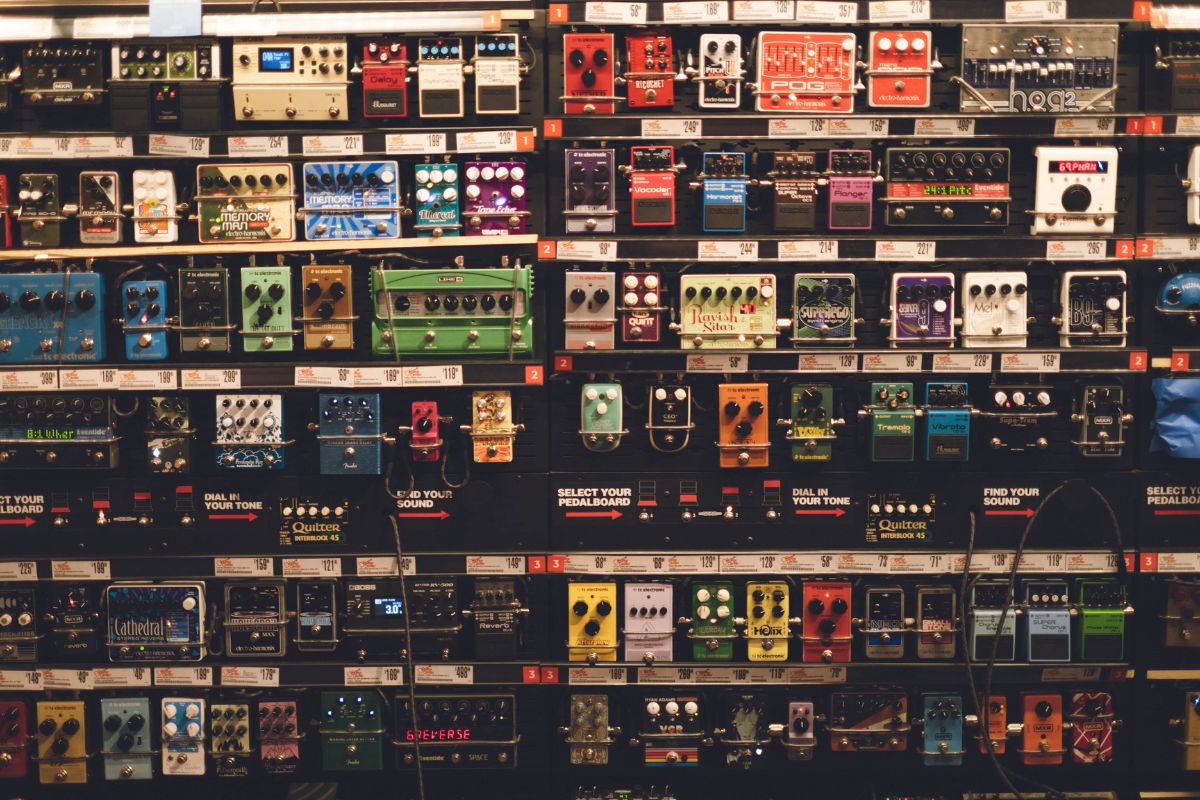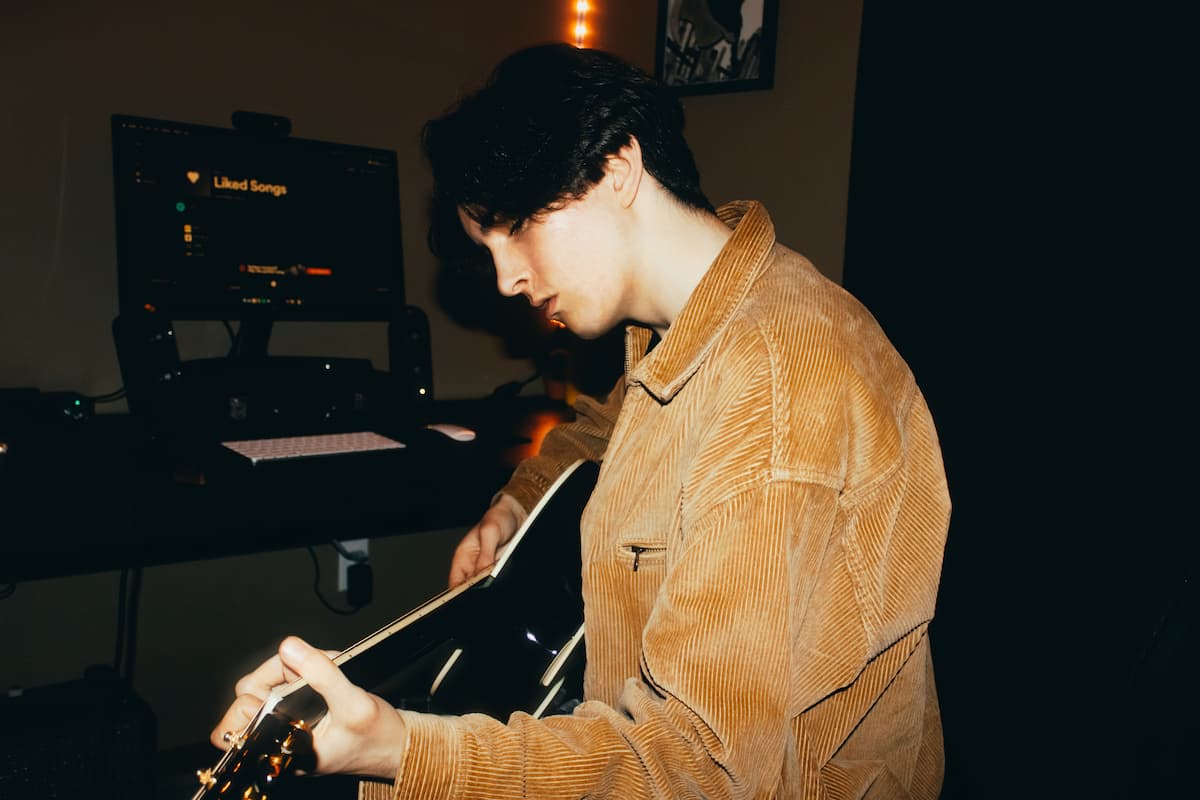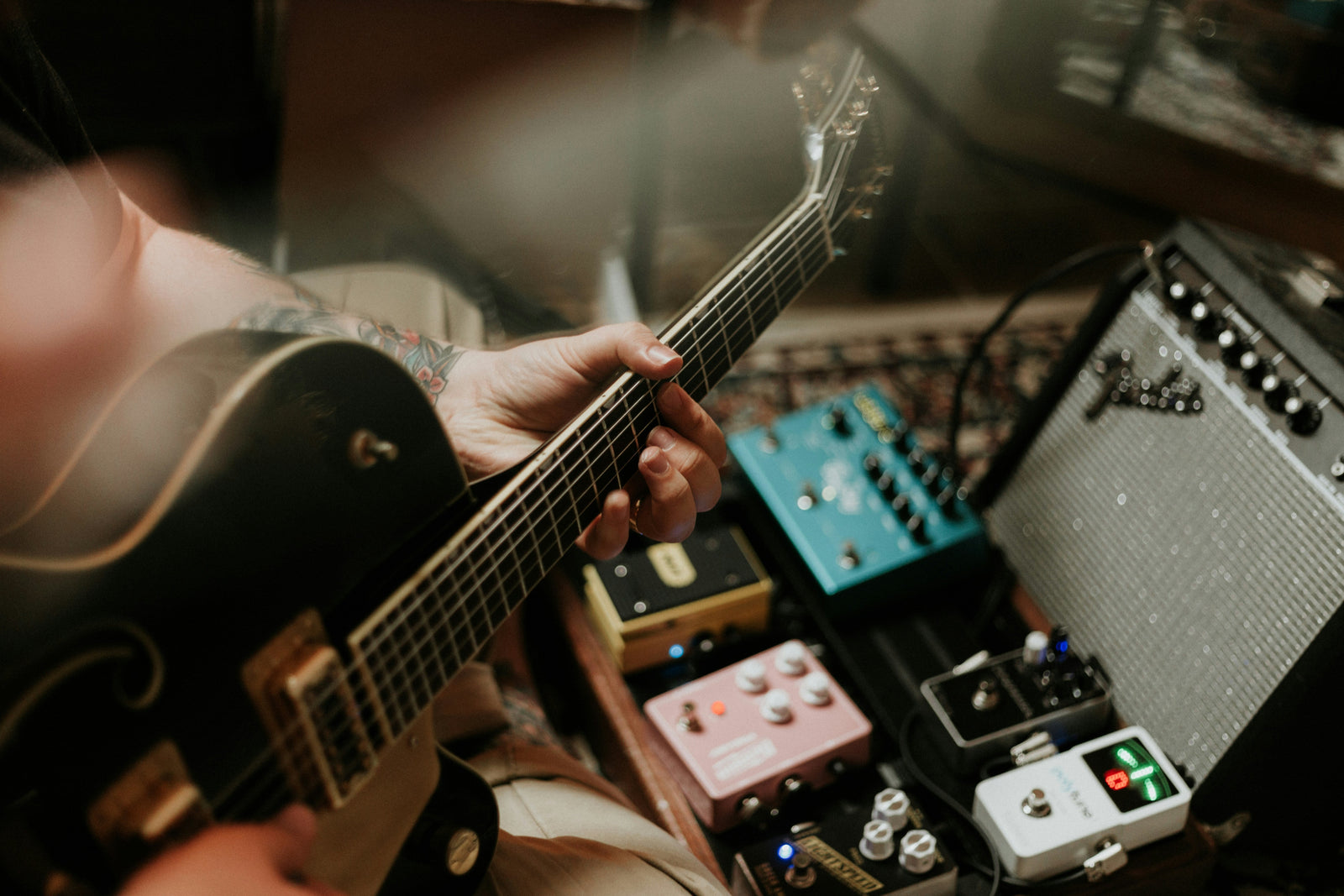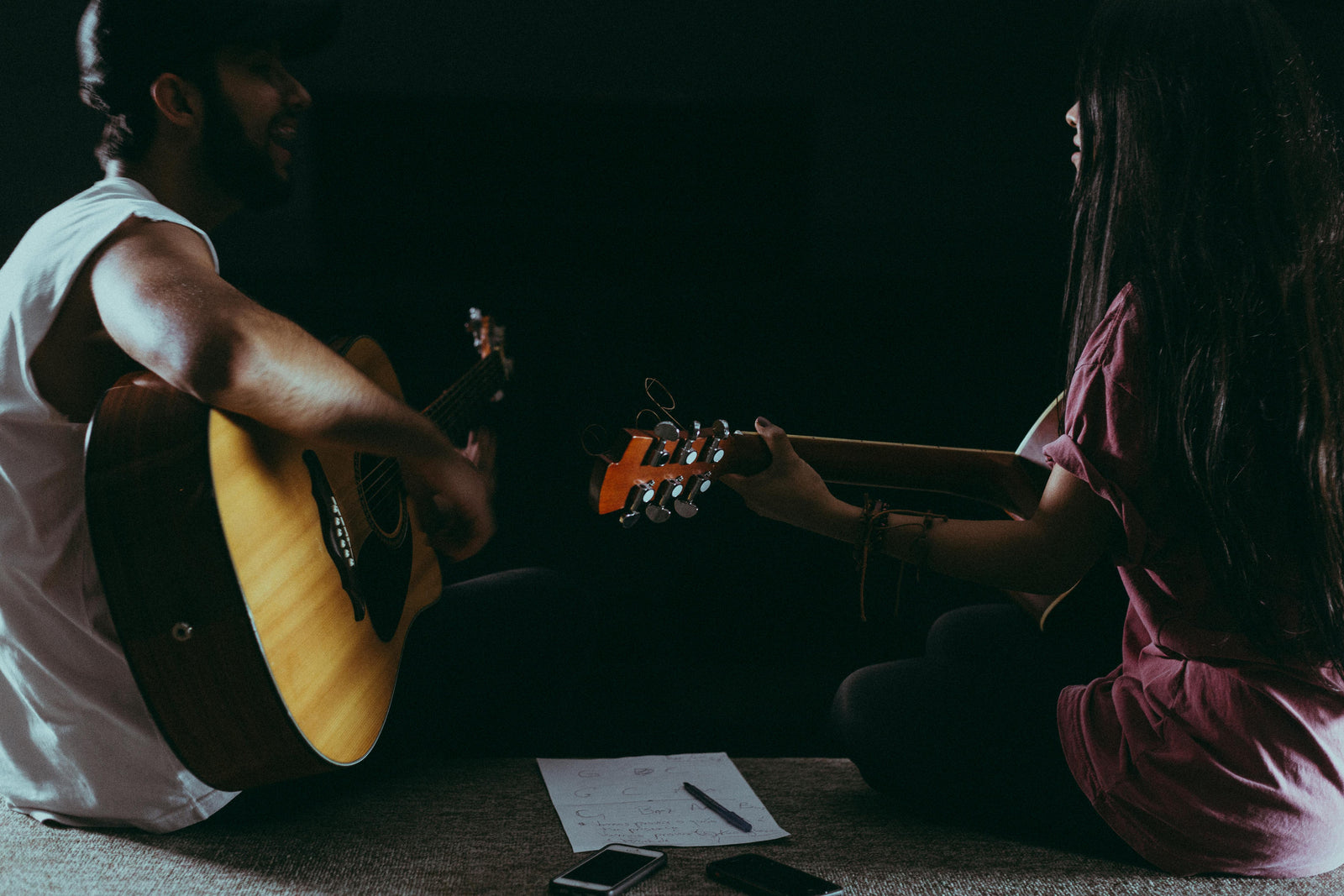BOSS Guitar Pedals: Delay/Reverb
When you're looking for guitar pedals, there are many things to consider and research. There's one question that most people who are shopping for guitar pedals want to know the answer to: “What should I get?”. There are a lot of factors to consider on selecting the right BOSS guitar pedal.
Choosing the perfect pedal involves many factors. Among the essential effects, delay and reverb take the spotlight. Delay introduces rhythmic echoes to single notes. While reverb shapes the spatial quality, adding depth and atmosphere to tracks. Both have left an indelible mark on the creation of timeless records. Ready to explore the realm of BOSS Guitar Pedals: Delay/Reverb? Join us on this sonic journey!
What Is A BOSS Guitar Pedal Delay?
A BOSS guitar pedal delay is an inventive tool for guitarists and bass players. It captures a snippet of sound and plays it back, creating a unique effect. These delays, measured in milliseconds, range from quick echoes to longer repeats.
Delay guitar pedals are versatile, enhancing guitar lines or filling in musical gaps. They can even act as standalone instruments, adding depth to compositions. Three main types of delay exist: tape, analog, and digital. Each type brings a distinct sound character and effect.
Analog delays, known for their echo and tape delay effects, offer warmth in sound. Digital delays provide a range of styles like dynamic and pattern delays. The key differences lie in repeats and sound degradation over time.
When a delayed guitar pedal replays sound, it creates a 'slapback' effect. This immediate reverberation adds a snappy dimension to the music. Longer delays result in cascading walls of sound, perfect for atmospheric soundscapes.
Why You Should Get A BOSS Guitar Pedal Delay?
Delay pedals, especially BOSS models, are more than mere effects. They're instruments in their own right. They offer endless creative possibilities, from subtle echoes to expansive sonic layers.
Investing in a BOSS guitar pedal delay can transform your music. It records your instrument's sound and replays it, creating a layered effect. This "wet" playback adds depth and complexity to your sound.
Whether you're a beginner or a seasoned musician, a BOSS guitar pedal delay can transform your music. Explore these pedals to discover new dimensions in your sound. With a BOSS guitar pedal delay, your musical creativity knows no bounds.
With this in mind, let's dive into the world of guitar pedal-based delay. Examine how it works, what it sounds like, and what options you have when it comes to manipulating the effect.
Delay As An Effect Pedal
Delay is a staple effect in music production, beloved for its versatility and ease of use. It captures a sound, stores it, and replays it, creating a unique echo effect. This process not only replicates the notes but also the subtle air vibrations.
Delay adds dimension and richness to music, enhancing the sound. It's fascinating how a simple delay can transform a piece. From subtle echoes to complex soundscapes.
The beauty of delay lies in its ability to make a single sound feel like a harmonious choir. It's no wonder delay is a favorite among musicians and producers alike.
How Does Delay Guitar Pedal Work?
The operation of a delay pedal is straightforward. But, its rather complex operation is one of the aspects that makes it so enjoyable to use daily! Let's dive into how a delay pedal works!
We are about to get into the nitty gritty of BOSS guitar pedal delay.
Here are the four main parameters that apply to all delay guitar pedals:
- Effect level - It is the amount of the delayed signal concerning the dry/input signal.
- Delay time - The delay time represents the duration from sending the initial signal. It marks the occurrence of the delayed signal.
- Repeats - It is the number of repetitions of the signal before the sound fades away.
- Feedback - a certain amount of the delayed signal that is returned to the delay line.
Let's listen to Johnny DeMarco as he shows how the delay pedal sounds in the recording studio or on stage.
BOSS Guitar Pedals: Delay
- RE-202 Space Echo
- RE-2 Space Echo
- DD-8 Digital Delay
- DD-3T Digital Delay
- DM-2W Delay
- DD-200 Digital Delay
- DD-500 Digital Delay
- DD-3 Digital Delay
- DD-7 Digital Delay
- TE-2 Tera Echo
TOP BOSS Guitar Pedal Delay: DD-8 Digital Delay
The DD-8 Digital Delay by BOSS is a pinnacle of versatility in its compact delay series. It offers an expansive range of features. It includes eleven delay modes for various effects. This pedal is adept at fitting into any mono or stereo setup.
The DD-8 stands out for its looper function with unlimited overdub capability. It has a looper offering up to 40 seconds of recording time. Delay time spans up to 10 seconds with a useful tap tempo feature.
- Three new delay types: Warm, +RV (delay+reverb), and GLT (rhythmic delay).
- Support for external control, enhancing versatility.
The DD-8 includes clean digital, vintage, and modulation echoes. New features like the Warm type offer softer tones, and +RV combines delay and reverb. The GLT type is ideal for creating rhythmic, glitchy effects.
Tap in tempos and experiment with Warp and GLT modes. Adding footswitches or an expression pedal opens up even more creative possibilities.
- Tap tempo and extended looper control with extra footswitches.
- A unique Twist effect is available in each mode for expressive echoes.
- Expression pedal compatibility for detailed control over effects.
The DD-8 Digital Delay is a comprehensive tool. Perfect for crafting dynamic and varied guitar tones.
What is a BOSS Guitar Pedals Reverb?
Reverb occurs from sound waves reflecting off surfaces and their eventual absorption. Different materials affect sound waves, altering the reverb effect. Clapping in a tiled bathroom versus under a blanket illustrates this difference.
Reverb effect units emulate these natural reverberations with digital algorithms. Modern recorded music often uses reverb to add space to 'dry' studio recordings. This method is more practical than recording in reverberant spaces.
Reverb is crucial in defining a guitar's place in a mix. A dry guitar tone can sound out of place in a musical ensemble. Various music genres use reverb for specific tones and ambient effects. Making it a key component of many guitarists' pedalboards.
Should You Get a BOSS Guitar Pedals Reverb?
Reverb is an essential effect in music used by guitarists. Adding a reverb pedal can enhance your guitar's sound with depth and space. It's a popular choice on pedalboards, used for guitar, vocals, and even synths.
If you're pondering reverb's role and how it enhances music, it's quite significant. Guitarists love reverb for the dimension and ambiance it adds to their sound.
Reverb As An Effect Pedal
Reverb as an effect pedal can significantly enhance a guitar's sound. It's capable of fattening up single notes, creating an almost synth-like effect. You'll find reverb pedals in professional studios, used to amplify guitar sounds.
Also, it is a prevalent effect across various music genres. From the soft, lingering tones in shoegaze to the intense echoes in metal, reverb is versatile. The effect isn't just a physical phenomenon; it's crafted through technology. Devices like spring and digital reverb in audio workstations produce this effect.
Reverb pedals create a virtual echo of sound, adding depth and ambiance. They simulate the reverberation of a specific place and time. This effect enriches the natural sound of instruments and recordings. Using advanced technology, reverb pedals generate artificial reverb.
Reverb isn't limited to guitars; it's used on bass, keys, horns, and vocals. The versatility of reverb pedals makes them a valuable tool for musicians. They bring a new dimension to music, enriching the overall sound quality. Whether for live performances or studio recordings, reverb pedals are essential.
How Does Reverb Guitar Pedal Work?
A reverb guitar pedal creates an illusion of space, much like sound in a large room. This natural effect enhances audio when used with skill. Imagine walking into a concert hall; the sound you hear is reverberation.
Reverb comprises repetitive reflections of original sounds, creating an echo-like effect. This gives a sense of spatial depth and ambiance.
The workings of a reverb pedal involve four main parameters:
- Effect Level - Determines the mix of the "wet" (affected) and "dry" (original) signals.
- Pre-delay - Sets the time gap between the original sound and the start of the reverb.
- Decay Time - It measures the duration of the reverb after triggering.
- Damping - Controls the decay rate of higher frequencies. It emulates sound absorption in real environments.
In practice, you choose settings that suit your music's mood and style. The pedal processes input sound, simulating different space sizes for a reverberating output. This creates an output that sounds like it's reverberating in various environments.
Selecting the right decay time and pre-delay can alter your sound in a significant way. Reverb pedals offer a simple way to add depth and character to your music. Understanding these settings allows for a tailored reverb effect, enhancing your musical expression.
Here’s Johnny DeMarco again as he illustrates how a reverb effect pedals sound like.
BOSS Guitar Pedals: Reverb
TOP BOSS Guitar Pedal Reverb: RV-6 Reverb
The RV-6 Reverb pedal from BOSS elevates pedal-based reverb with high-end sound. It transcends the capabilities of previous models, utilizing cutting-edge technology and BOSS expertise. This pedal allows for the effortless creation of stunning reverb tones.
Using the RV-6 is straightforward: select a mode, adjust the knobs, and play. Despite its simplicity, the RV-6 offers rich, sophisticated reverb. Each mode houses detailed parameters tuned with meticulous attention to the guitar. Adjustments with the Time and Tone knobs refine the sound. You can tailor it to your preference.
- The RV-6 includes modes like +DELAY, SHIMMER, and DYNAMIC for varied effects.
- ROOM, HALL, and PLATE modes offer everything from warm to spacious reverbs.
- Specialized modes like SPRING and MODULATE provide unique reverb textures.
The RV-6 is a tool for endless creative exploration, perfect for any guitarist.
BOSS Guitar Pedals Delay and Reverb: What Are The Differences?
BOSS Delay and Reverb pedals are popular among guitarists for their unique effects. While often used together, they offer distinct sound enhancements. Understanding their differences is key to choosing the right pedal for your needs.
Effects
Delay effects involve playing back an audio signal later and softer. This creates a series of echoes that add depth to your sound.
In contrast, reverb simulates the sound of a space, like a large hall or room. It gives the impression of playing in an airy, open environment.
Echoes
Both delay and reverb create echoes but serve different purposes. Clapping your hands in a room illustrates a natural reverb. It's the sound bouncing off walls, creating a natural echo. Delay, yet, is like clapping with diminishing intensity each time. Creating a rhythmic echo.
A delay pedal produces artificial echoes timed with the music. A reverb pedal adds depth to your sound, independent of your playing speed. Delay adds rhythmic complexity, while reverb provides spatial depth.
Choosing between delay and reverb depends on your desired sound. Delay is great for rhythmic and echoing effects. Reverb is ideal for creating an atmospheric or spacious sound. Both pedals are versatile and can enhance your guitar's sound. Explore BOSS's range of delay and reverb pedals to find your perfect match.
BOSS Guitar Pedals Delay and Reverb: What Are The Similarities?
Delay and reverb pedals, while distinct in their effects, share some common ground. Both are time-based effects, manipulating sound over time. Delay sends out a single, repeated sound immediately after it's played. Reverb involves many reflections of the same sound to create ambiance.
These pedals add depth, volume, and space to guitar sounds. They are among the most popular effects in a guitarist's toolkit. Both delay and reverb enhance the sound's dimension and texture. Musicians can use them in various ways to suit different musical styles.
While delay focuses on echoing a single sound, reverb creates a sense of environment. These effects can be subtle or dramatic, depending on the settings used. Both pedals allow guitarists to explore new sonic landscapes. Understanding their similarities aids in using them together or apart. With delay and reverb, the possibilities for sound exploration are vast and exciting.
Should You Get A BOSS Guitar Pedals Delay and Reverb?
Everyone's musical taste is unique. If you find yourself drawn to the sounds of reverb and delay, it's worth exploring when to best use these pedals.
Best Time To Use A BOSS Guitar Pedal Delay
Delay pedals shine during live performances, particularly in solos. They create echoes that fill any gaps in your music, adding depth and intrigue.
Think of delay as a tool to enrich your sound, offering echoes that enhance your playing.
Best Time To Use A BOSS Guitar Pedal Reverb
Reverb pedals are versatile, and suitable for various effects. They can add ambiance to clean tones or emulate vintage reverb units. Reverb is fantastic for creating an atmosphere, giving your tone a sense of space and breadth.
It's a key element in achieving those iconic guitar tones. It provides depth and cohesion to your sound.
Best Time To Use Both BOSS Guitar Pedal Delay and Reverb
Delay is incredibly dynamic, offering everything from subtle echoes to complex effects. When combined with reverb, it elevates your sound, perfect for heavy riffs and creating a grand, aggressive aura.
Together, delay and reverb can transform your sound, making it fuller and more immersive.
BOSS Guitar Pedals Delay and Reverb: Conclusion
In conclusion, BOSS guitar pedals for delay and reverb enhance your playing. Delay adds depth and rhythm, perfect for solos and filling gaps. Reverb creates an atmospheric soundscape, enriching your tone with space and depth.
Together, these pedals transform your guitar's sound into a rich, immersive experience. BOSS's guitar pedals delay and reverb are indispensable for any guitarist.





